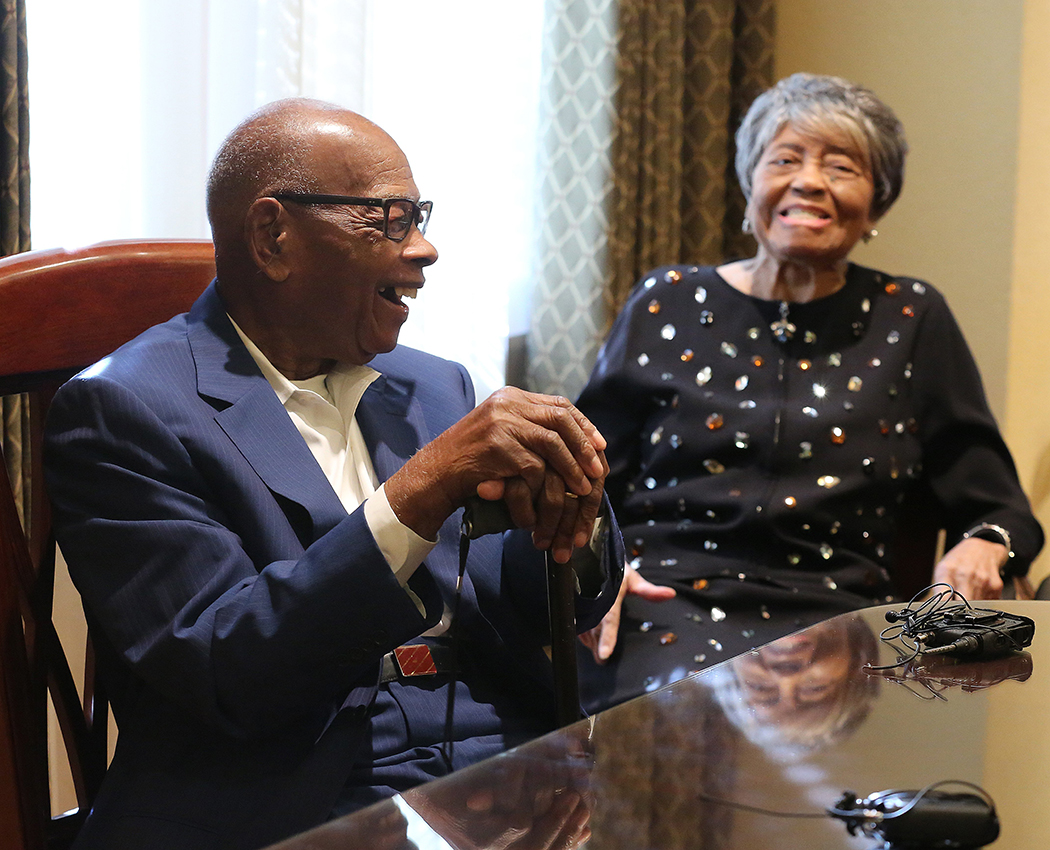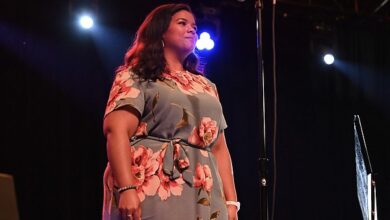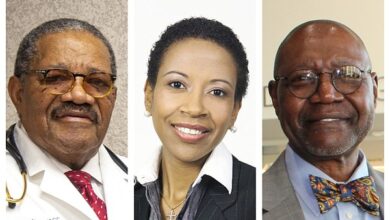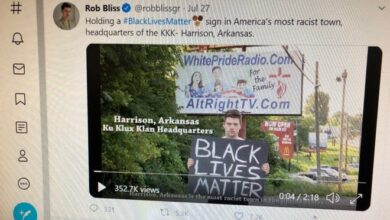Bishop Donne Lindsey, North Little Rock icon, still works to bring people together | The Arkansas Democrat-Gazette

Bishop Donne Lindsey wasn’t necessarily looking to mix barbecue with politics in the 1950s when he opened his restaurant in North Little Rock.
But in 1956 there was something inherently political about a Black man opening a barbecue restaurant in Jim Crow Arkansas that would cater to white and Black customers.
“I just said I was going to open a place and get both of them coming in the same door and sitting in the same place,” Lindsey said.
Lindsey, 97, is still a giant of North Little Rock, serving as a minister, a City Council member and one of the city’s most recognized entrepreneurs. He has served on the board of directors of Centennial Bank, the North Little Rock Boys and Girls Club, and the North Little Rock Housing Facilities Board.
Lindsey has honorary degrees from Arkansas Baptist College and Shorter College, the latter of which sits on Bishop Lindsey Avenue in North Little Rock.
He returned Tuesday to City Hall, where he served as a member of the City Council, for an interview that served as part of North Little Rock’s Black History Month commemoration. For more than 30 minutes, Lindsey held court, speaking about racism, barbecue, God and his wife, Irma Moore Lindsey, whom he has been married to for 75 years.
When it came to business, Lindsey said he was inspired by other Black entrepreneurs in racially segregated North Little Rock who owned barbershops, restaurants and pharmacies.
Black entrepreneurship grew out of segregation as African Americans were denied entry into most white-dominated institutions in the South, from public schools to restaurants.
“That was one of the restaurants you could go in and have dinner because in the 1960s it was still kind of crazy,” said Arnessa Bennett, who grew up in racially-segregated North Little Rock.
Bennett, 62, now works for the city leading its newly created diversity, equity and inclusion alliance. Bennett said Blacks were not welcomed at most white-owned restaurants in the 1960s, either being denied service outright or asked to go to a back door to pick up food to carry out.
“I can remember as a little girl that was one of the only places in North Little Rock that we went and sat down and ate dinner,” she said.
The year Lindsey opened his restaurant, Gov. Orval Faubus was on his way to a landslide re-election. The following year, Faubus became internationally known for resisting racial segregation at Central High School in Little Rock, which led to a standoff between the state and federal government in 1957.
President Dwight D. Eisenhower eventually called in U.S. Army troops from the 101st Airborne Division to enforce desegregation at Central High School.
Things were similar across the Arkansas River, as weeks after the Little Rock Nine desegregated Central High School, six Black students from Scipio Jones High School attempted to desegregate North Little Rock High School in the face of a white segregationist mob.
While the city reeled from the threat of racial violence, Lindsey’s plan to get white and Black customers into his restaurant didn’t change.
“When the ’57 crisis came we established a strong enough identity … it did not affect us, the business, as far as Black and white was concerned,” Lindsey said.
Lindsey was born in Bluff City in 1924 to a family of sharecroppers and later moved to Maumelle, according to CALS Encyclopedia of Arkansas.
Deborah F. Rhodes grew up across the street from Lindsey in the Military Heights area in North Little Rock. Rhodes said that when her father died when she was 14 years old, Lindsey was there with his soft yet powerful voice to provide wisdom.
Rhodes, now the head of the North Little Rock National Association for the Advancement of Colored People, said it was Black religious and civil-rights leaders like Lindsey, her pastor Otis Cecil Jones and Martin Luther King Jr. who inspired “that people that look just like me were able to achieve different things.”
“When I think about Bishop Lindsey, I know a lot of people think of him because of the barbecue — which is wonderful — but also the impact he made from City Council to the North Little Rock Boys and Girls Club,” Rhodes said.
During World War II, Lindsey served in a medical unit, working as an administrator of records in the U.S. 5th Army. Lindsey’s military service took him from North Africa to Sicily to Rome.
It was while he was back home on leave in 1944 that he decided to go into the ministry, he said, serving at the England Church of God from 1951 to 1958 and later at the Revelation Church of God in Christ in Carlisle. In 1972, he organized Emmanuel Mission in North Little Rock and served as the administrative assistant to the Church of God In Christ Jurisdictional Bishop in 1973.
In the early 1970s, Lindsey became the first African American to serve on the North Little Rock City Council after being appointed by William F. “Casey” Laman. But a few years into the job Lindsey stepped aside, saying city politics distracted from his ministry and his businesses.
“I was a community person, but it just wasn’t my speed,” he said.
Reflecting on his time in the city, Lindsey said the city still hasn’t achieved true racial integration. There are still strong racial divides between the city’s wealthiest neighborhoods and its poorest, where issues are often ignored.
“I think time works on a cycle, you know?” Lindsey said. “It appears to me we made some progress, but we’re going in a circle.”
 Bishop D.L. Lindsey and his wife, Irma, laugh as he tells a story about their 75 years of marriage Tuesday at North Little Rock City Hall. In honor of Black History Month, North Little Rock is highlighting 12 distinguished Black American leaders who have North Little Rock roots. Lindsey was the first Black person to serve on the North Little Rock City Council. (Arkansas Democrat-Gazette/Thomas Metthe)
Bishop D.L. Lindsey and his wife, Irma, laugh as he tells a story about their 75 years of marriage Tuesday at North Little Rock City Hall. In honor of Black History Month, North Little Rock is highlighting 12 distinguished Black American leaders who have North Little Rock roots. Lindsey was the first Black person to serve on the North Little Rock City Council. (Arkansas Democrat-Gazette/Thomas Metthe)






















































